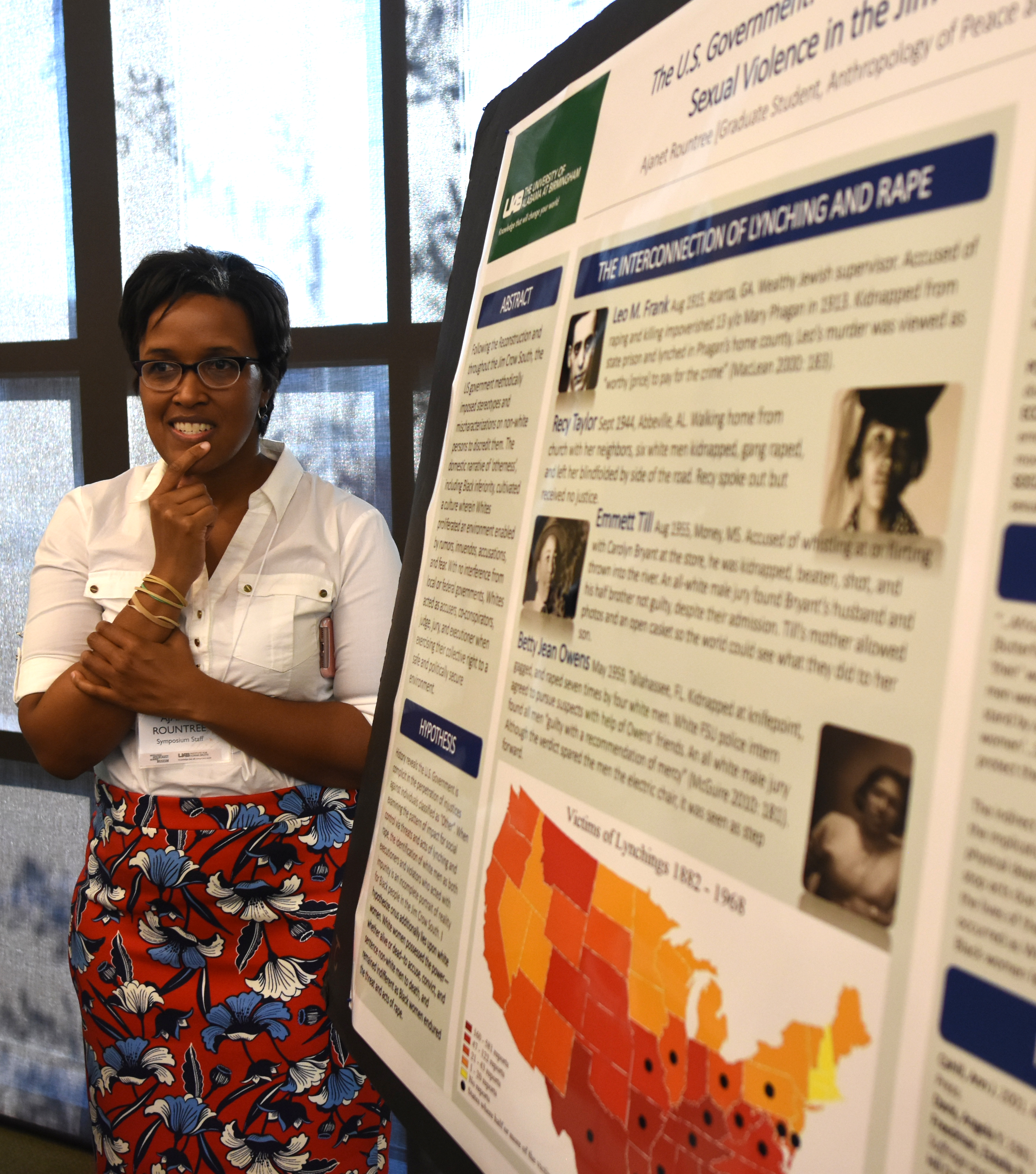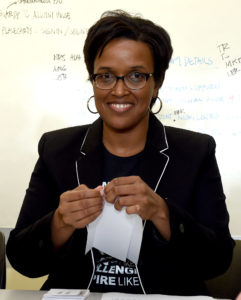
By Ariel Worthy
The Birmingham Times

Ajanet Rountree, a graduate assistant at UAB’s Institute for Human Rights (IHR), wanted to be part of the conversation. So, when the institute recently hosted a two-day symposium on comparisons between Nazi Germany and the Civil Rights Movement, Rountree asked, “How I can I do part of my thesis research and contribute to the narrative [of the symposium]?”
During the conference at the University of Alabama at Birmingham, Rountree and other undergraduate and graduate students presented posters on human rights; she chose to do one on sexual violence in the Jim Crow South—“The U.S. Government: A Complicit Bystander in the Sanctioning of Sexual Violence in the Jim Crow South.”
“A portion of my master’s thesis has components of rape as social control … in the South, particularly Birmingham, and also in the civil war in Liberia. My master’s thesis is looking cross-culturally at the role of black women in social movements,” said Rountree, who is working toward a degree in Anthropology of Peace and Human Rights.

One focus of the IHR is to start conversations about human rights violations not just in Birmingham but around the world, said Tina Kempin Reuter, director of the institute, which opened its doors in 2016 and is housed under the UAB College of Arts and Sciences.
“The IHR serves as a platform for dialogue, discussion, and collaboration on issues related to human rights, social justice, and equality in our community,” she said. “Our vision and goal: to be a forum for dialogue and bridge-building across racial, religious, socioeconomic, and political boundaries.”
Rountree said the hypothesis for her poster presentation was that the “onus additionally lies upon white women. White women—whether dead or alive—possessed the power to accuse, convict, and sentence nonwhite men to death, and they remained indifferent as black women endured [both] the threats and acts of rape.”
Rountree cited four examples in her presentation: Leo Frank, Recy Taylor, Emmett Till, and Betty Jean Owens. Frank was a Jewish-American man accused of raping and killing a 13-year-old girl; he was lynched as a result, but it was later discovered that Frank did not commit the crimes.
“In the case of Frank, he was the oddity because he was not guilty,” she said. “He became a victim because of revolutionary populism, in which everybody, no matter what, jumped on the bandwagon, saying it had to be him. Doesn’t matter if it wasn’t.”
The story of Till, the 14-year-old killed for allegedly whistling at a white woman, helped spark the 1955 Montgomery Bus Boycott.
“Given my hypothesis, white women, dead or alive, had the power to accuse black [men] of rape,” Rountree said. “And those men were automatically sentenced to death.”
It is different for black women, however: “In the cases of Recy Taylor and Betty Jean Owens, both were gang-raped by white men,” Rountree said. “In Taylor’s case, justice was never received. In Owens’s case, she did receive an amount of justice: the all-white jury found the white men in her case guilty but with a recommendation of mercy, which meant they would not receive death as punishment, which is different in the cases of Till and Frank.”
Rountree also offered a comparison to today’s #MeToo Movement, which was started 10 years ago by a black woman.
“But nobody knew [about it] until Taylor Swift or Rose McGowan,” she said. “Then, all of a sudden, #MeToo is this huge movement. Now, it’s like, wait a second, the narrative was already started by a black woman. How come you didn’t talk about it then? How come she’s not receiving the justice that she deserved before?”




